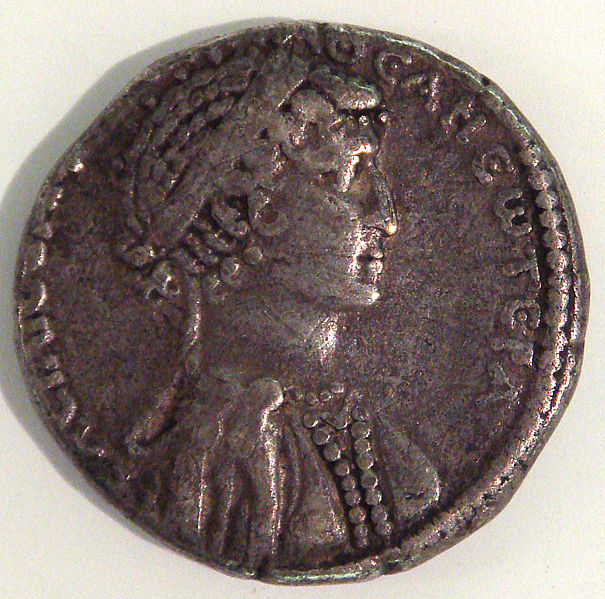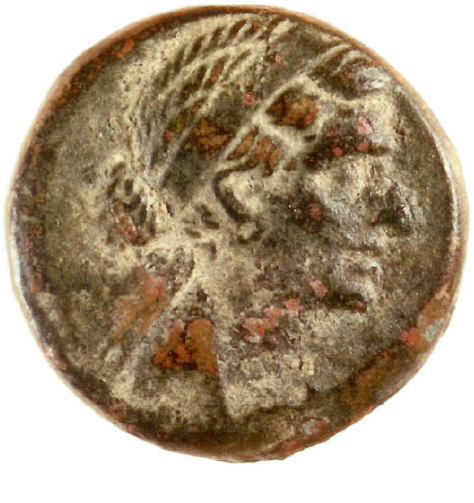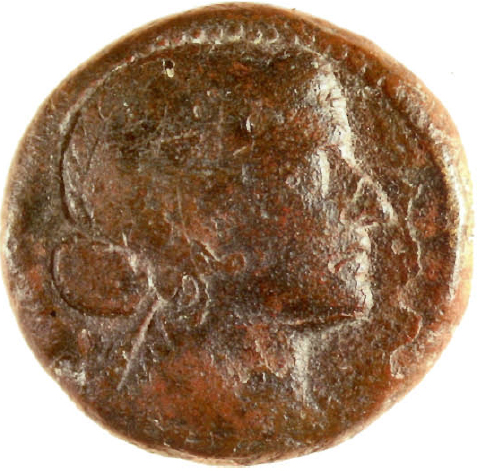Cleopatra VII Thea Philopator was the ruler of Egypt from 51 – 30 BCE. As Pharaoh, she consummated a liaison with Gaius Julius Caesar that solidified her grip on the throne. The most famous story is that Cleopatra was wrapped up in a carpet or blanket and carried secretly into the palace by a faithful Greek attendant, before being unrolled in front of a mesmerized Caesar. Cleopatra was 21—more than 30 years younger than Caesar—exceptionally beautiful, highly educated, intelligent, and with a fascinating personality. Thus began one of the most famous romances in history.
After Caesar’s assassination, Cleopatra aligned with Mark Antony, with whom she produced twins. In all, Cleopatra had four children, one by Caesar (Caesarion) and three by Antony (Cleopatra Selene II, Alexander Helios, and Ptolemy Philadelphus). Her unions with her brothers produced no children. It is possible that they were never consummated; in any case, they were not close. Her reign marks the end of the Hellenistic Era and the beginning of the Roman Era in the eastern Mediterranean. She was the last Pharaoh of Ancient Egypt (her son by Julius Caesar, Caesarion, ruled in name only before Augustus had him executed).
Though she bore the ancient Egyptian title Pharaoh, her primary language was Greek; for several centuries preceding her rule, Egyptian kings had been of Greek (i.e. Hellenistic) origin rather than Egyptian origin. The establishment of a Greek-speaking aristocracy in Egypt had come with Alexander the Great nearly 300 years before. Cleopatra is reputed to have been the first member of her family in their 300-year reign in Egypt to have learned the Egyptian language. Cleopatra adopted common Egyptian beliefs and deities. Her patron goddess was Isis, and thus during her reign, it was believed that she was the re-incarnation and embodiment of the goddess of wisdom.
After Antony and Cleopatra were defeated at Actium by their rival and Caesar’s legal heir, Gaius Julius Caesar Octavian (who later became the first Roman Emperor, Augustus), Cleopatra committed suicide, the traditional date being 12 August 30 BC, allegedly by means of an asp bite.
Ancient Orient Museum, Tokyo
See also-


